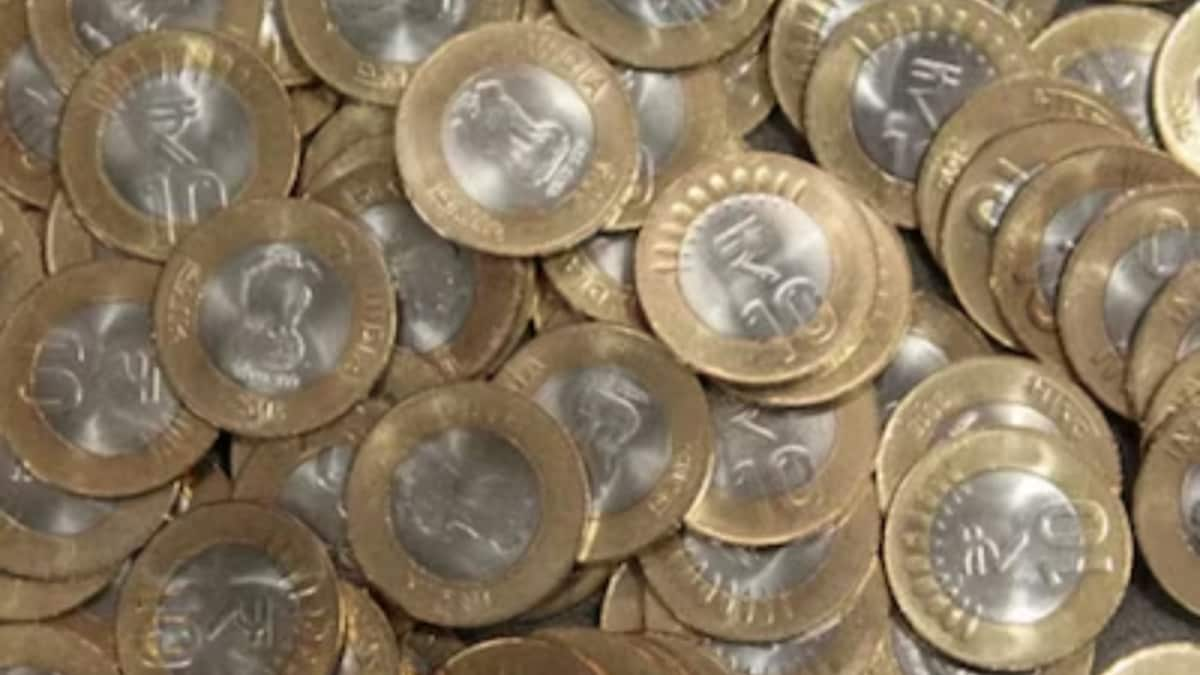Last Updated:
Rumours about fake Rs 10 coins have been confusing, but the RBI confirms all design variants are legal tender.

If in doubt, approach a bank for verification. (representative image)
Many people believe that only high-denomination notes like Rs 100, Rs 500, or Rs 1,000 can be faked, not coins. However, recent reports have raised concerns about the circulation of fake Rs 10 coins. While the cost of producing counterfeit coins is higher than that of notes, rumours have confused the public and shopkeepers.
People have started questioning the design, counting the stripes, checking the rupee symbol, and even doubting the placement of the country name. Some believe fake coins have 15 stripes instead of 10 or feature unusual markings.
Recommended Stories
This has led to hesitancy in accepting Rs 10 coins, with some claiming their circulation has stopped.
How To Identify A Genuine Coin
The Reserve Bank of India (RBI) has reportedly clarified that these rumours are false. Coins are minted by the Government of India and sometimes released in different designs or denominations.
For example, Rs 10 coins released in 2009 carry 15 stripes overlapping the inner and outer circles with the Ashoka Pillar and Satyamev Jayate in between.
Coins released in 2011 reduced the stripes to 10, removed the overlapping pattern, and added the rupee symbol above the numeric 10. Both variants are legal tender and valid for transactions.
Fake coins may try to mimic older designs with 15 stripes or unusual embossing, but maintaining the exact quality and finishing is difficult. The RBI warns against judging a coin as fake based solely on design differences and advises the public to continue accepting all Rs 10 coins as valid.
What To Do If A Shopkeeper Refuses
If a shopkeeper refuses to accept a Rs 10 coin, don’t panic or spread rumours. Instead, approach a bank to have the coin verified. Banks can send suspicious coins to the RBI for examination. If genuine, the coin is returned; if fake, a police investigation may be initiated.
All banks are mandated to accept coins of all denominations that are legal tender and provide equivalent value in notes. Refusing to accept such coins can be booked under Sections 489A to 489E of the IPC. Common places where Rs 10 coins are rarely questioned include supermarkets, railway ticket counters, toll plazas, post offices, government buses, and malls.
What You Should Know
Rs 10 coins are legal tender, and design variations do not make them fake. Always verify with banks if in doubt, avoid spreading rumours, and continue using them confidently in everyday transactions.
About the Author
A team of writers and reporters decodes vast terms of personal finance and making money matters simpler for you. From latest initial public offerings (IPOs) in the market to best investment options, we cover al…Read More
A team of writers and reporters decodes vast terms of personal finance and making money matters simpler for you. From latest initial public offerings (IPOs) in the market to best investment options, we cover al… Read More
September 26, 2025, 14:14 IST
Loading comments…
Read More
Go to Source
Author: News18



